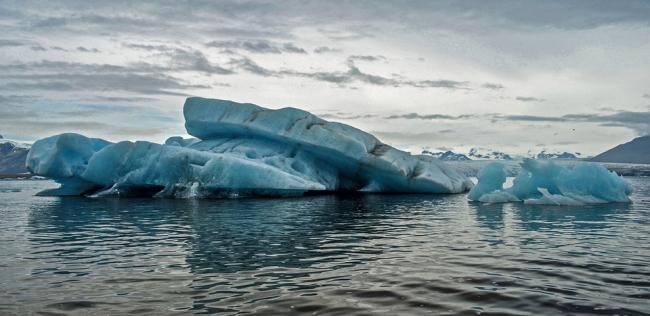
Planet at risk of heading towards “Hothouse Earth†state
New York, Aug 7 (IBNS): An international team of scientists has published a study in Proceedings of the National Academy of Sciences (PNAS) showing that even if the carbon emission reductions called for in the Paris Agreement are met, there is a risk of Earth entering what the scientists call “Hothouse Earth” conditions.
A “Hothouse Earth” climate will in the long term stabilize at a global average of 4-5°C higher than pre-industrial temperatures with sea level 10-60 m higher than today, the paper says.
The authors conclude it is now urgent to greatly accelerate the transition towards an emission-free world economy, read Stockholm Resilience Centre website.
"Human emissions of greenhouse gas are not the sole determinant of temperature on Earth. Our study suggests that human-induced global warming of 2°C may trigger other Earth system processes, often called “feedbacks”, that can drive further warming - even if we stop emitting greenhouse gases," says lead author Will Steffen from the Australian National University and Stockholm Resilience Centre.
"Avoiding this scenario requires a redirection of human actions from exploitation to stewardship of the Earth system.”
Currently, global average temperatures are just over 1°C above pre-industrial and rising at 0.17°C per decade.
Places on Earth will become uninhabitable
The authors of the study consider ten natural feedback processes, some of which are “tipping elements” that lead to abrupt change if a critical threshold is crossed. These feedbacks could turn from being a “friend” that stores carbon to a “foe” that emits it uncontrollably in a warmer world.
These feedbacks are: permafrost thaw, loss of methane hydrates from the ocean floor, weakening land and ocean carbon sinks, increasing bacterial respiration in the oceans, Amazon rainforest dieback, boreal forest dieback, reduction of northern hemisphere snow cover, loss of Arctic summer sea ice, and reduction of Antarctic sea ice and polar ice sheets.
"These tipping elements can potentially act like a row of dominoes. Once one is pushed over, it pushes Earth towards another. It may be very difficult or impossible to stop the whole row of dominoes from tumbling over. Places on Earth will become uninhabitable if “Hothouse Earth” becomes the reality," warns co-author Johan Rockström, former executive director of the Stockholm Resilience Centre and incoming co-director of the Potsdam Institute for Climate Impact Research.
Hans Joachim Schellnhuber, Director of the Potsdam Institute for Climate Impact Research, says, "We show how industrial-age greenhouse gas emissions force our climate, and ultimately the Earth system, out of balance. In particular, we address tipping elements in the planetary machinery that might, once a certain stress level has been passed, one by one change fundamentally, rapidly, and perhaps irreversibly. This cascade of events may tip the entire Earth system into a new mode of operation.”
“What we do not know yet is whether the climate system can be safely 'parked' near 2°C above preindustrial levels, as the Paris Agreement envisages. Or if it will, once pushed so far, slip down the slope towards a hothouse planet. Research must assess this risk as soon as possible."
Cutting greenhouse gases is not enough
Maximizing the chances of avoiding a “Hothouse Earth” requires not only reduction of carbon dioxide and other greenhouse gas emissions but also enhancement and/or creation of new biological carbon stores, for example, through improved forest, agricultural and soil management; biodiversity conservation; and technologies that remove carbon dioxide from the atmosphere and store it underground, the paper says.
Critically, the study emphasizes that these measures must be underpinned by fundamental societal changes that are required to maintain a “Stabilized Earth” where temperatures are ~2°C warmer that the pre-industrial.
"Climate and other global changes show us that we humans are impacting the Earth system at the global level. This means that we as a global community can also manage our relationship with the system to influence future planetary conditions. This study identifies some of the levers that can be used to do so," concludes co-author, Katherine Richardson from the University of Copenhagen.
Support Our Journalism
We cannot do without you.. your contribution supports unbiased journalism
IBNS is not driven by any ism- not wokeism, not racism, not skewed secularism, not hyper right-wing or left liberal ideals, nor by any hardline religious beliefs or hyper nationalism. We want to serve you good old objective news, as they are. We do not judge or preach. We let people decide for themselves. We only try to present factual and well-sourced news.







